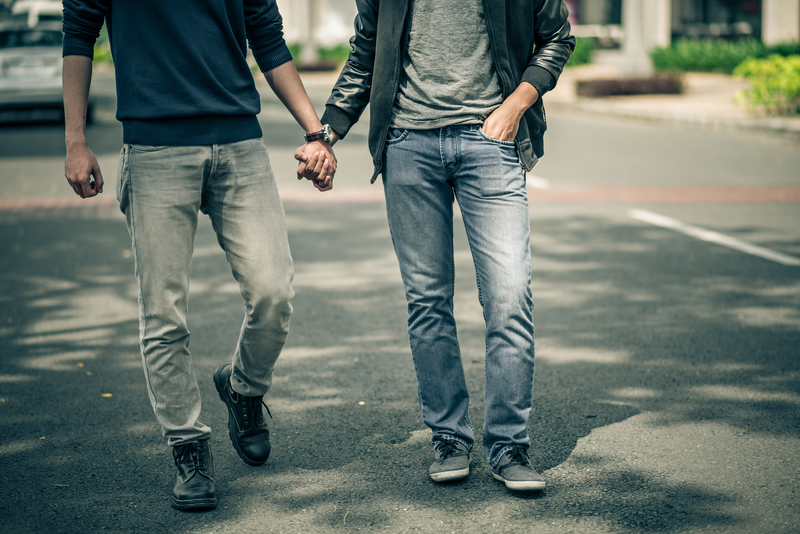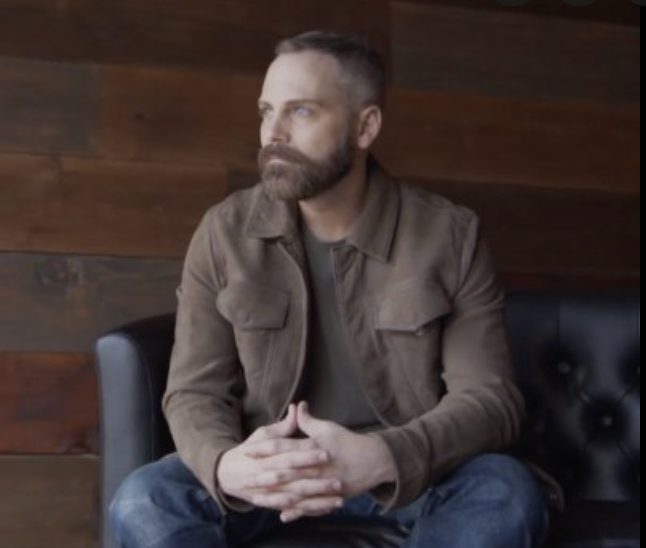How Love Conquers Even Politics (Sometimes)

How can you tell there's a civil war coming? Suddenly, nobody around you is civil. Tweet

Highlights
When one tribe fights another...
...both think they're waging war against evil.
“My stupid Republican dad just said he’s a fan of yours. I died,” an ex-boyfriend, who usually only reaches out when he’s feeling fragile from severe hangover, texted me the other day. “He called you my ‘ex-friend,’ he couldn’t even say ‘boyfriend,’” the ex laughed.
It was nice to hear from him. His dad, whom I met several years ago on a trip to California to meet his family, saw me on Fox News that night and messaged his son. The ex and I couldn’t be further opposites in our political views, but when we got together that didn’t seem to matter so much, despite, at the time, being slightly more ideologically aligned than we are today.
The last six years or so have seen all sorts of relationships destroyed, or abandoned, over political differences on a scale probably unmatched since the 1860s. Americans have run into their corners and shored up their tribes—which isn’t necessarily a bad thing. America is a deeply totemic nation, something at the core of our founding. The Originators organized us into states that would attend to regional interests with a federal government devoted solely to national interests because they recognized, and sought to appease, our tribal, fractious nature.
I no longer speak to any friends I knew before the 2016 election. Half the country doesn’t speak to the other half.
I no longer speak to any friends or colleagues I knew before the 2016 election. Half the country doesn’t speak to the other half. We’ve become fully absorbed into our tribes. Yet, it occurred to me, ex-boyfriends are the only political antipodes from a former time who do remain in my life. In fact, all of my longest, most meaningful relationships have been with people who vote the other way and I’m always amazed they still, on occasion, reach out on friendly, often playful, terms.
“I’m still always defending you to my friends,” a different ex said to me recently. “I hate your politics, but they don’t know you like I do. I know you’re a good person,” he said. It gets at a theme in some of our most enduring stories—the Montagues and the Capulets, Pocahontas and John Smith—a love transcending enemy lines in a time of war.
But those stories, for the foreseeable future, won’t be produced anymore, in fiction or reality. I would dare say it’s not only unlikely, but impossible, to date or fall in love with a political adversary in this moment. We’ve completely relented to only meeting people on dating apps like Bumble—or Instagram, which pretends not to be a dating app—where potential mates are reduced to disposable, one-dimensional bits of data, gone forever in a swipe. It’s a video game. But what person, in their right mind, would go any further with a dating profile that didn’t sink up politically?
App addicts look at dating as a numbers game (it isn’t) and dispose of anyone at the slightest sign of potential distress, or incongruence, relying on the impression that, by tomorrow, they can slide into thirty different inboxes where, surely, they’ll find something close to perfect. But if there’s any metric that perhaps ought to be used to immediately discard a potential mate, particularly one met online, it’s politics, I’m sorry to say. Politics is now the best indicator on whether or not you fundamentally see the world in the same way. You can’t begin love by arguing about the color of the sky. You can, probably, have great sex, though.
“The last two elections flipped a switch in women’s heads. Their ovaries think they’re heading into an apocalypse and have shuttered the saloon,” a friend remarked.
I wish it weren’t so. I’m the product of a politically binary union—a Democrat mother and Republican father—and people like me may one day be a thing of the past. While my parents’ divorce a couple decades ago had nothing to do with politics, growing up in a split home made me far more open-minded toward both sides than if my parents had one of those IN THIS HOUSE WE BELIEVE signs out front. I’ve found others who also grew up in a split home tend to be more tolerant and less hysterical toward the other side. That conversation looks more like, Oh, you voted for Candidate X? So did my dad. You guys are crazy, as opposed to, You voted for Candidate X? You are literally Hitler and want me dead [throws drink, storms out].
The difference, with my exes, is we met before the Cold Civil War got heated. Any politically binary relationship that survives today will tell you the same thing—they met before the golden escalator
It’s a beautiful, profoundly redeeming, quality in people that, no matter how much we may gnash and seethe at the other side, once you’ve shared a deeply intimate connection with someone—the kind only possible in romantic, or parental, love–very little can shake that person’s humanity from you, not even politics or peer pressure. That’s the truer meaning behind the weaponized slogan, “Love Is Love”. The world may tell you that someone is evil, but even Jeffrey Dahmer’s parents said they still loved their son
With that second ex, sometimes when I see he’s out with friends at a bar, I’ll message him. “Saw you were at Mickey’s, I’m in the neighborhood, I’ll stop by and say hello,” I’ll text, even if I’m miles away. It’s amusing to watch the terror flood him. “Oh my god, you better not, we’re leaving soon anyway,” he’ll fire back. I’m not welcome in his tribe and if it were revealed we were still on friendly terms, it would injure his standing with them. I get that. He’d have to explain himself, defend me all over again, and battle slanders and outbursts from his buddies, not because I’m a bad guy who wronged him, but because of politics. It’s exhausting.
I love him enough, just as a person, that I wouldn’t want that for him. And I don’t care to be liked by, or even friendly with, his people. Nor does he with mine. This is my life and his life, not theirs, and some things aren’t worth explaining. The times we have seen each other, since the world went crazy, have been in private, just the two of us, which, in a strange way, bred a stronger intimacy than we had when we were together.
We’re keeping a secret. And while your kindergarten teacher may have told you secrets don’t make friends, sometimes secrets are necessary for keeping friends around.
More From Chadwick Moore









